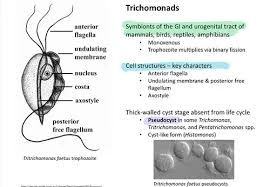
Out . 19, 2024 00:36 Back to list
infectious bursa disease
Infectious bursa disease (IBD), also known as infectious bursa disease virus (IBDV), is a significant viral infection affecting chickens worldwide. The disease primarily impacts young birds, particularly those between the ages of three to six weeks, leading to considerable economic losses in poultry production. The virus targets the bursa of Fabricius, a crucial organ in the avian immune system, which plays a vital role in the development of B lymphocytes. The consequent immunosuppression makes birds more susceptible to other infections, compounding the challenges faced by poultry farmers.
IBDV is classified into two serotypes serotype 1 and serotype 2, with serotype 1 being the most pathogenic and widely studied. The transmission of IBDV occurs primarily through the fecal-oral route, with contaminated feed, water, equipment, and the environment contributing to its spread. Due to the resilience of IBDV outside the host, it can persist for extended periods, making control measures challenging.
Infectious bursa disease (IBD), also known as infectious bursa disease virus (IBDV), is a significant viral infection affecting chickens worldwide
. The disease primarily impacts young birds, particularly those between the ages of three to six weeks, leading to considerable economic losses in poultry production. The virus targets the bursa of Fabricius, a crucial organ in the avian immune system, which plays a vital role in the development of B lymphocytes. The consequent immunosuppression makes birds more susceptible to other infections, compounding the challenges faced by poultry farmers.Preventing and controlling IBD requires a multi-faceted approach. Vaccination remains the most effective strategy for managing IBDV infection in chickens. Vaccines are available in various forms, including live attenuated and inactivated vaccines, and can induce immunity in flocks. Proper vaccination schedules, combined with good management practices, can significantly mitigate the impact of IBD.
infectious bursa disease

In addition to vaccination, biosecurity measures are critical in preventing the introduction and spread of the virus. This includes maintaining clean housing, proper sanitation, and minimizing the introduction of new birds without quarantine protocols. Regular monitoring and surveillance play essential roles in early detection and response to outbreaks, allowing farmers to act swiftly and protect their flocks.
Research into IBD continues to evolve, focusing on understanding the virus's molecular biology and pathogenesis, as well as developing more effective vaccines and therapeutic strategies. The ongoing development of recombinant vaccines offers promise for more targeted and lasting immunity against IBDV.
In conclusion, infectious bursa disease is a formidable challenge in the poultry industry, but with proactive vaccination strategies and robust biosecurity measures, the impact of this disease on chicken populations can be effectively managed. As the poultry industry continues to grow, addressing IBD will remain a priority for ensuring the health and productivity of domestic birds.
-
Acute Salpingitis and Oophoritis AI Factory
NewsJul.31,2025
-
Premium China Bacillus Subtilis Supplier & Factory Solutions
NewsJul.30,2025
-
Premium Avermectin Supplier in China | Custom Solutions Available
NewsJul.29,2025
-
China Bacillus Subtilis Supplier - Custom Factory Solutions
NewsJul.29,2025
-
China Salivation: Leading Custom Salivation Supplier & Factory Solutions
NewsJul.29,2025
-
Leading Lincomycin Hydrochloride Manufacturer & Supplier with High Purity
NewsJul.29,2025




